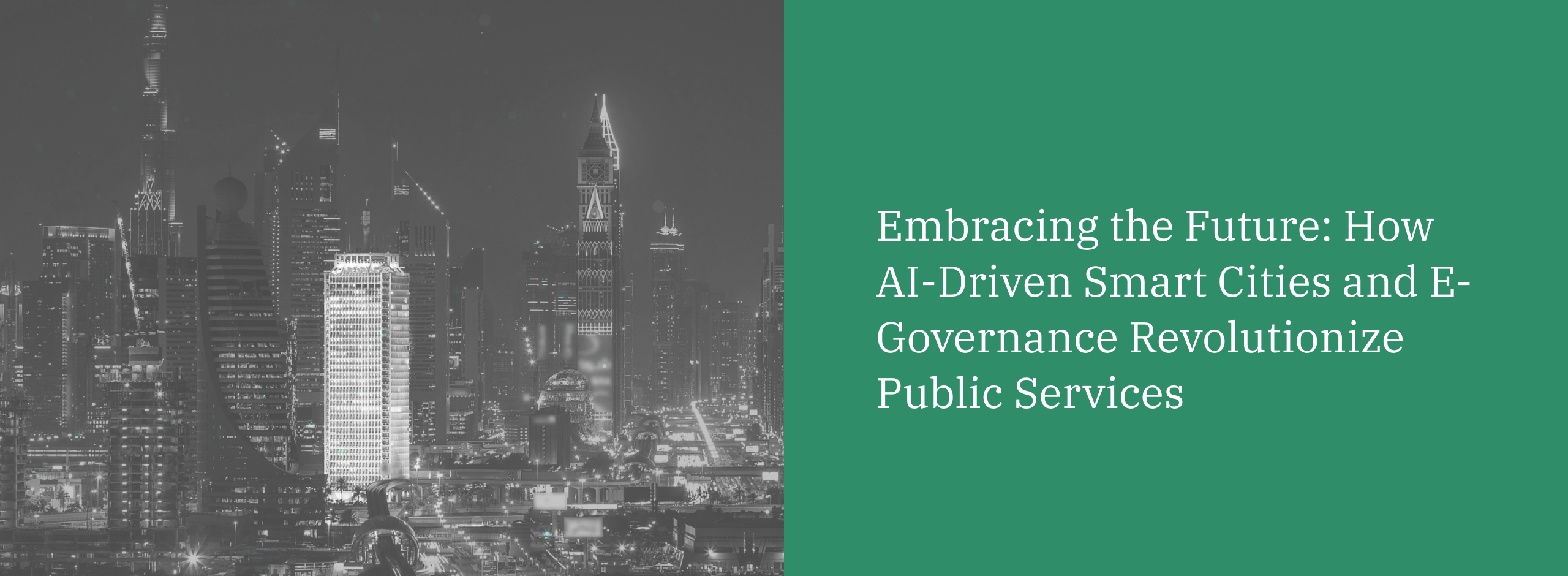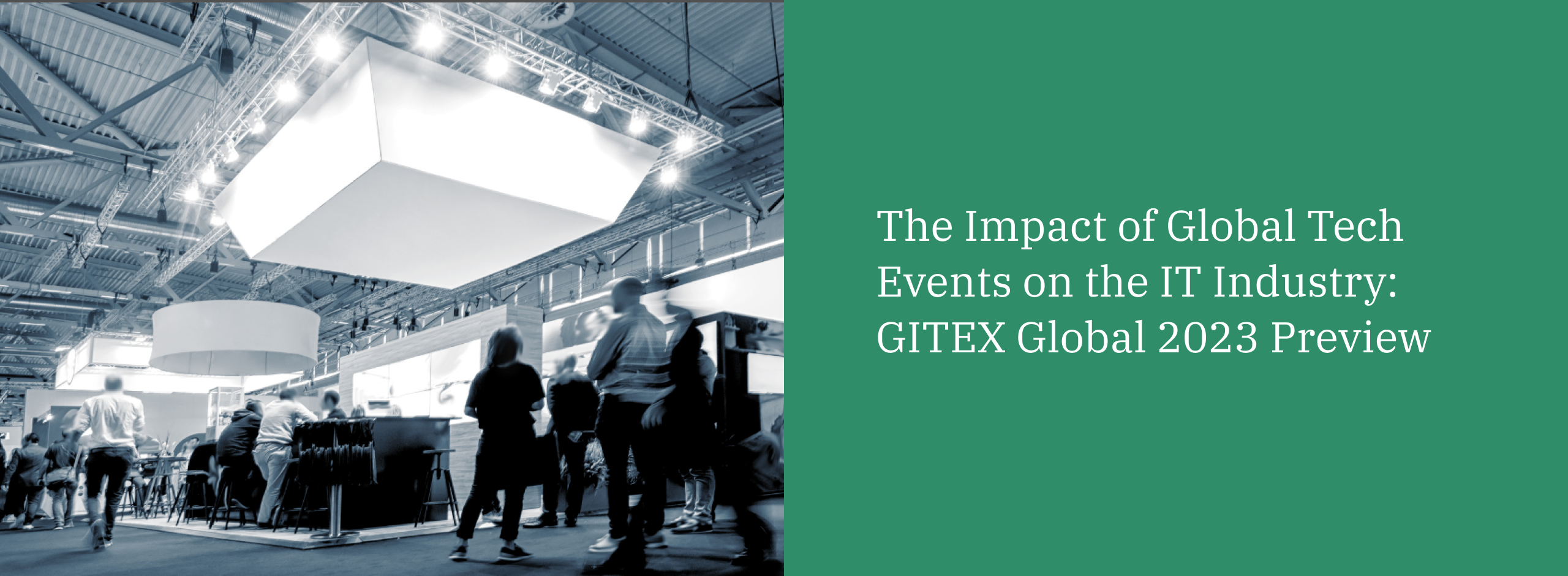
Embracing the Future: How AI-Driven Smart Cities and E-Governance Revolutionize Public Services
With the rise of artificial intelligence (AI), innovations like self-driving cars, robots, and advanced city systems are making cities more autonomous than ever before. This new wave of urban development sees AI not just aiding but often directing city services and governance. Reflecting on the intricate connection between the evolution of AI and e-governance in the future of smart cities we have Alexander Khachiyan, IT visionary and TalentNations founder.
In an era where our world's population is exploding and urban spaces are growing denser, governments are finding themselves at a pivotal crossroads. A United Nations report predicts that by 2030, a staggering 60% of the global population will be residing in urban areas. [1] This exponential urbanization, while promising progress, also presents an array of challenges encompassing social, technical, and organizational aspects. Smart cities use a mix of technology and infrastructure to improve the lives of their residents. With the rise of artificial intelligence (AI), innovations like self-driving cars, robots, and advanced city systems are making cities more autonomous than ever before. This new wave of urban development sees AI not just aiding but often directing city services and governance.
Reflecting on the intricate connection between the evolution of AI and e-governance in the future of smart cities we have Alexander Khachiyan, IT visionary and TalentNations founder.
Role of AI and IoT in Smart Cities
Integrating AI with the IoT in smart cities is a growing trend, changing how cities are managed and developed. By analyzing massive data from IoT devices with AI, we see new growth opportunities and less direct human involvement.
Smart city tools gather vast data and resources to address specific challenges, such as urban sustainability, resilience, social welfare, and vitality, including urban transportation solutions. For example, Saudi Arabia is investing $500 billion in the construction of a master-planned city, Neom, in which, according to the Saudi Crown Prince, “everything will have a link with artificial intelligence”. [2]
AI is not just enhancing cities but also emerging as a major industry. With 5G's rollout and the rise of IoT, AI software for smart cities is becoming a lucrative business. In 2019, the industry had an estimated value of $673.8 million (€573.2 million). That figure is expected to balloon to an incredible $4.9 billion (€4.3 billion) by 2025. [3]
With the rise of 5G and interconnected data banks, AI quickly processes data to address city challenges. This makes urban improvements faster and more efficient. With data's rising importance, mastering its use is vital for smart city growth. Today's AI systems use a mix of public and private data, combined with various sensors and IoT devices, to understand citizen behavior and preferences. They look at city elements, from transport to housing, considering factors like demographics, sustainability, and public views to pinpoint issues and predict solutions.
Smart cities are already benefiting from AI technology. For instance, Abu Dhabi has won the title of the most intellectually advanced metropolis in the MENA region, ranking first in the Smart City Index 2023 for the third consecutive year. Abu Dhabi earned the 'smartest' title for embracing advanced technologies like AI and IoT and launching innovative projects, especially in transportation and logistics.
Digital platforms and online governance are transforming how AI-driven cities operate. As they become smarter, there's a bigger focus on e-governance. This not only boosts transparency but also reduces paperwork and bridges the gap between citizens and their government. AI speeds up routine tasks, reduces human error, and delivers public services faster and better. AI assists governments in making better decisions, which are refined using public and expert opinions. This collaboration ensures a safer and more sustainable tomorrow.
TalentNations analyzed five main areas, where AI is helping to modernize our cities in terms of e-governance.
Urban planning
AI aids city planning by analyzing historical land patterns, helping identify areas at risk of natural disasters. Yet, its potential in improving smart governance extends that.
Urban planning is complex and often slow due to extensive research and bureaucracy. However, with AI, heat maps, and APIs, governments can quickly access extensive data. This data speeds up decision-making, allowing changes that once took months to be implemented much faster, enhancing city life.
Security
Public safety is an important part of any modern city. AI is used to enhance its CCTV systems. Traditional cameras capture so many hours of footage that it's hard for humans to review it all. However, with AI, they can quickly sift through this data, improving safety and security without changing existing infrastructure.
AI-enhanced CCTV systems can analyze footage instantly, spotting potential threats or signs of upcoming crimes. Features like facial recognition, license plate reading, and package detection are being introduced globally to ensure safer streets. Based on the UAE experience, the idea of soft power works extremely well under strict laws. The inevitability of punishment makes the city safe.
The government can also use AI to protect citizens against natural disasters. Japan already uses AI-backed systems that can provide timely alerts during disasters. By partnering with chatbot creators, they can quickly share crucial information in multiple languages, ensuring everyone stays informed and safe.
Traffic
In 2018, the US faced an $87 billion loss from traffic jams. While tackling congestion is challenging, AI solutions are now stepping in to help.
AI helps to improve city traffic by syncing public transport schedules, forecasting traffic jams, optimizing travel routes, enhancing street lights and managing air traffic. Smart parking systems use IoT and sensors to show drivers available spots, reserve spaces, and handle ticket payments automatically.” Fetch AI is one of those changing the game.
Energy
Sizable structures, like schools and hospitals, use a considerable amount of energy. AI offers an opportunity to cut down this consumption, but this opportunity is not fully utilized yet.
AI can analyze data, identify peak energy consumption periods, and anticipate energy usage patterns. This cost-effective solution not only benefits citizens but also enhances home safety. If an unusual surge in water usage occurs when no one is at home, AI can detect it and alert the owner to potential issues like water leaks.
AI initiatives designed to combat energy waste were successfully tested in Suwon, South Korea, with impressive results. These trials focused on government buildings, and after optimization, these structures saw a 30% increase in energy efficiency, a 35% reduction in carbon emissions, and administrative costs were slashed by up to 50%.
Economy
In a smart city, the idea is simple: use new technologies and data to make a more efficient and enduring economy. This includes using AI and big data to analyze business processes and introduce updated payment systems for smoother transactions. This approach results in new efficient products that resonate with customers, driving economic growth and competitiveness. A smart economy supports upcoming businesses and fosters collaboration among entrepreneurs.
For instance, D. Valle-Cruz and team studied how AI could be used to improve how public funds are allocated, aiming for better economic, political, and social results. They used a specific AI method that analyzed World Bank data from 1960 to 2019 for 217 countries. Their research showed that AI can help decide how to use public funds to decrease inflation and boost GDP.
The MENA region is an attractive place to start a business, but the process of obtaining rights and residence permits makes it quite complicated. In terms of government digitization, there are growth zones as many steps need to be reduced. There is a demand to minimize offline interaction with representatives, increase interaction with commercial entities through digital channels, expand the list of services and accelerate the ways of obtaining them. The easier and more transparent the process, the more attractive the region will be.
Smart cities are not merely about incorporating technology; they signify a transformation in the very essence of urban life. Through the fusion of cutting-edge technology and AI-driven platforms, these cities aspire to provide their residents with a superior and sustainable future. Maximizing the potential of AI necessitates unfettered access to data, a requirement met through robust connectivity. Knowing how to harness AI tools to manage this wealth of data is paramount. Various solutions, such as 5G, will play a pivotal role as they increasingly become the linchpin for the advancement of smart cities.
2 https://www.bloomberg.com/graphics/2017-neom-saudi-mega-city/
3https://futureiot.tech/opportunities-for-greater-use-of-ai-in-smart-cities/





